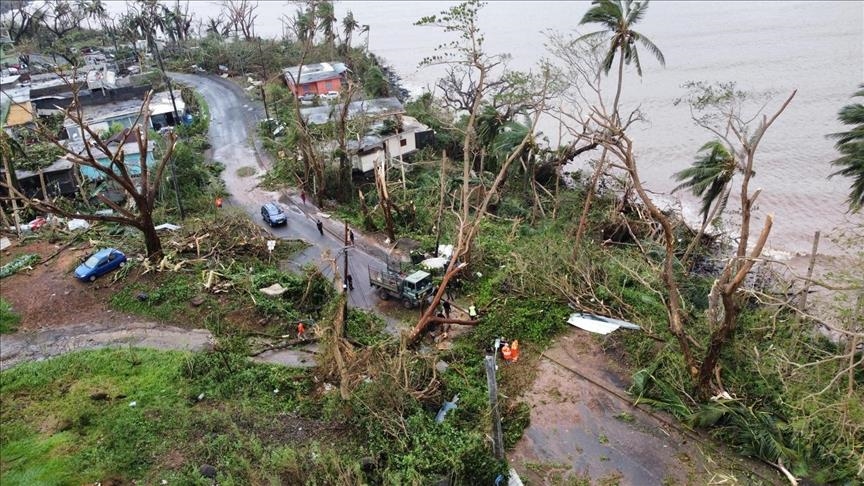At least 94 people have been k!lled in Mozambique following the devastation caused by Cyclone Chido, which swept across the country with powerful winds and heavy rainfall.
The cyclone, characterized by winds of 260 km/h (160 mph) and 250 mm of rainfall in its first 24 hours, struck on December 15, leaving a trail of destruction in its wake.
The storm initially ravaged the French Indian Ocean territory of Mayotte before moving on to Mozambique, Malawi, and Zimbabwe, hitting Mozambique’s northern provinces, which are often vulnerable to cyclones.
The Mozambique National Institute of Disaster Management (INGC) reported that 768 people were injured and over 622,000 affected by the cyclone.
The disaster has significantly impacted critical sectors such as education and health, with over 109,793 students affected and 52 health facilities damaged, limiting access to essential services.
Daniel Chapo, leader of Mozambique’s ruling party, told local media that the government is mobilizing support at “all levels” to respond to the crisis and aid those affected.
The Intergovernmental Panel on Climate Change (IPCC) has attributed the rise in precipitation associated with tropical cyclones to human activities, highlighting the increasing risks posed by climate change.
![]()




























































